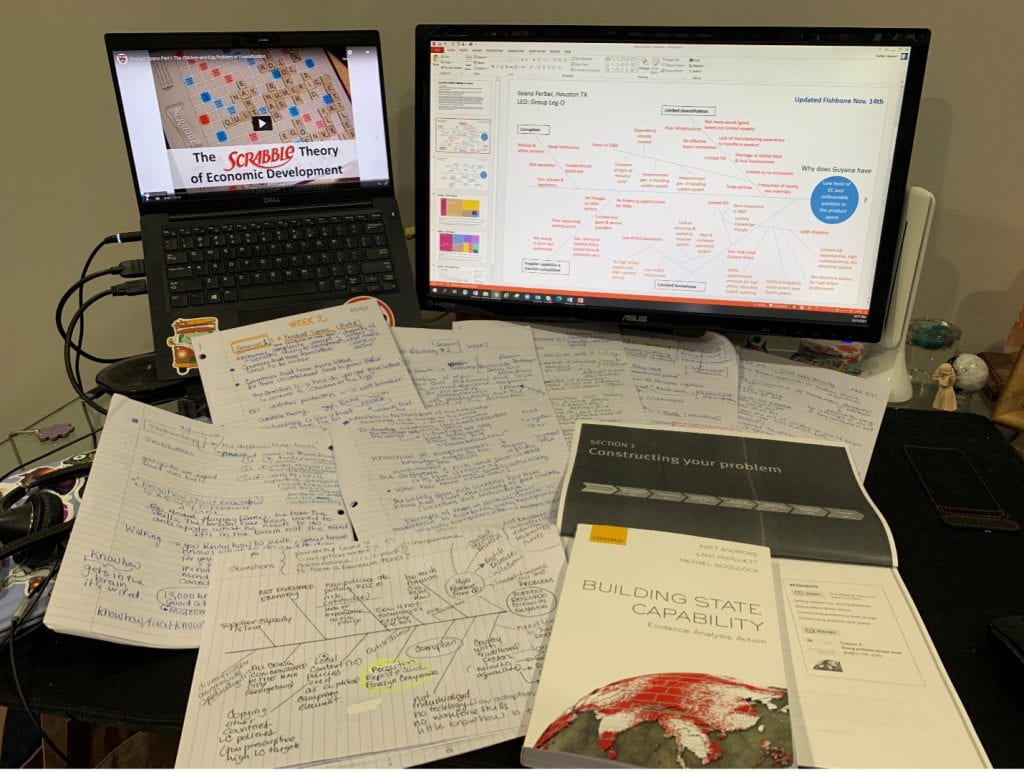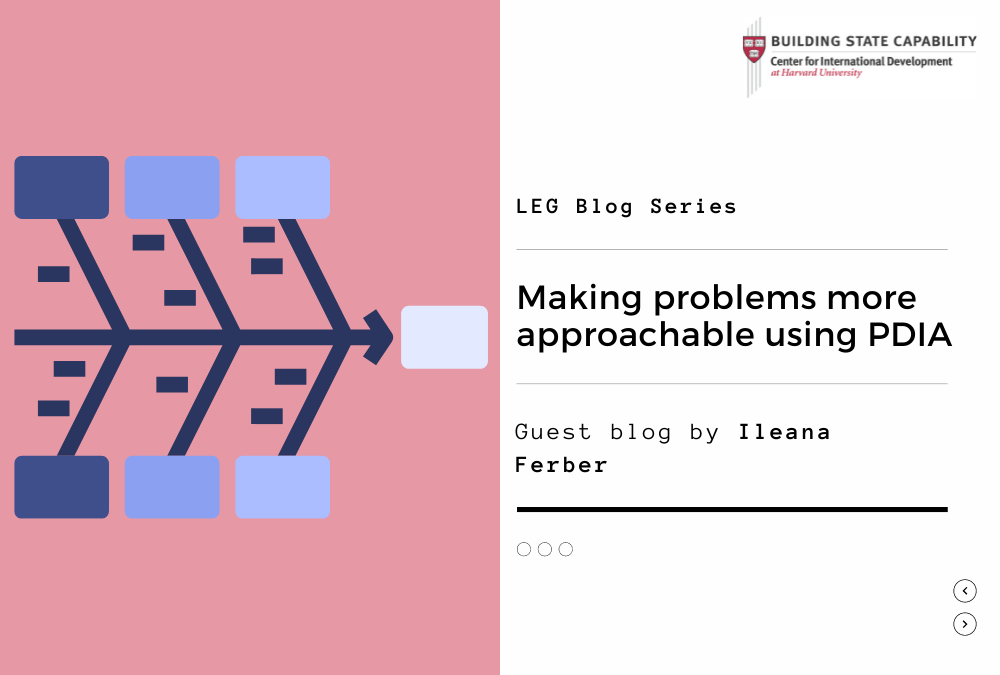Guest blog by Ileana Ferber
For a professional that has been dreaming of working in international development her whole life, the LEG program has been one of the best learning experiences that I have had so far. I like to learn, so that is why I am continuously taking courses and building on my skills. This program has given the tools that I need to follow when trying to solve a problem. I used to see them as macro problems (and they still are), but after learning the PDIA process, problems seem to be more approachable than before. It has given me the confidence to propose solving problems. I know how to do it, or at least where to start. Asking “why?” five times has changed my life (now I’m Ileana after LEG). It makes everything possible. I want to solve problems. I find myself deconstructing problems at work and at home. The fishbone is showing up in my dreams.
The economic growth in Guyana and other countries that I work on closely have always been latent. I know they are there. I always felt like a little ant not knowing how to tackle these problems. Now I know how, who to call, where to start, when the right time is, and what process to follow. During these 10 weeks my economic growth (EG) problem evolved significantly. I started with a consequence, a possible outcome of a problem, but didn’t identify the real problem. Here is the evolution of my EG challenge for Guyana:
- Week 2: How to avoid the resource curse in a new oil and gas producer.
- Week 3: Avoid the resource curse in a new oil and gas producer.
- Week 4: Guyana’s economy needs diversification to avoid the resource curse
- Week 5: Limited diversification of the Guyanese economy due to resource curse
- Week 6: Low level of economic complexity and unfavorable position in the product space.
- Week 7: The ECI is too low and the position in the product space is unfavorable. The growth diagnostics indicates that it’s due to the lack of collective knowhow.
- Week 8: The ECI is too low and the position in the product space is unfavorable. The growth diagnostics indicates that it’s due to the lack of collective knowhow.
- Week 9: The ECI is too low and the position in the product space is unfavorable. The growth diagnostics indicates that it’s due to the lack of collective knowhow.
I am so happy with the definition of my growth challenge. The fishbone diagram (3 version), the 5 why’s and a 1-1 session with my TA helped me to get to the final iteration of my problem.
Starting in January, I will set up some meetings with some representatives in the Ministry of Natural Resources. There is one person that is doing a PhD in Economics that wants to hear about my proposal (student-to-student conversation). I want to make some connections with Guyanese alumni that have experience with the PDIA process (former LEG students) to start forming a team. I would like to work on this not using my ExxonMobil hat (at least until I get some traction and have the 3A’s secured). I would like to bring the CID to Guyana. I’m going to start by sharing a copy of the Building State Capability to some contacts in Guyana. I will spend my Christmas holidays preparing the 100-day challenge and a summary of my LEG project.
One open question that I would like to get answered in another program would be how to design a fit-for-purpose policy that can enable the country and the key stakeholders to improve countries’ competitiveness without deterring foreign investment. How can I influence government to design the right policy? I am a Local Economic Development subject matter expert in my company. This program has given me a competitive edge in this area. I will continue learning new tools and try to put them in practice in my current job. Since I have been already experiencing some limitation (especially in authority). My long-term plan is to become an independent consultant, where I can freely help build governments’ capabilities around economic development and policy design.
This is my LEG space. I will always remember that this is where all started.

This is a blog series written by the alumni of the Leading Economic Growth Executive Education Program at the Harvard Kennedy School. 61 Participants successfully completed this 10-week online course in December 2021. These are their learning journey stories.
